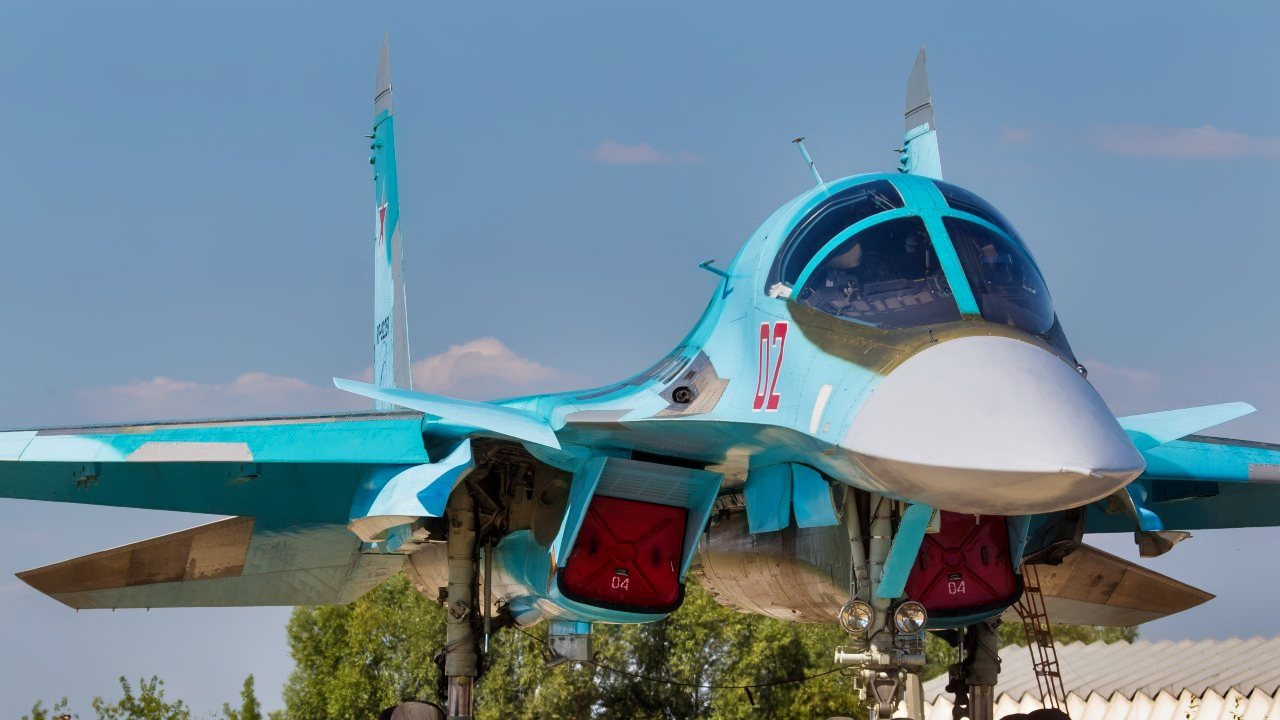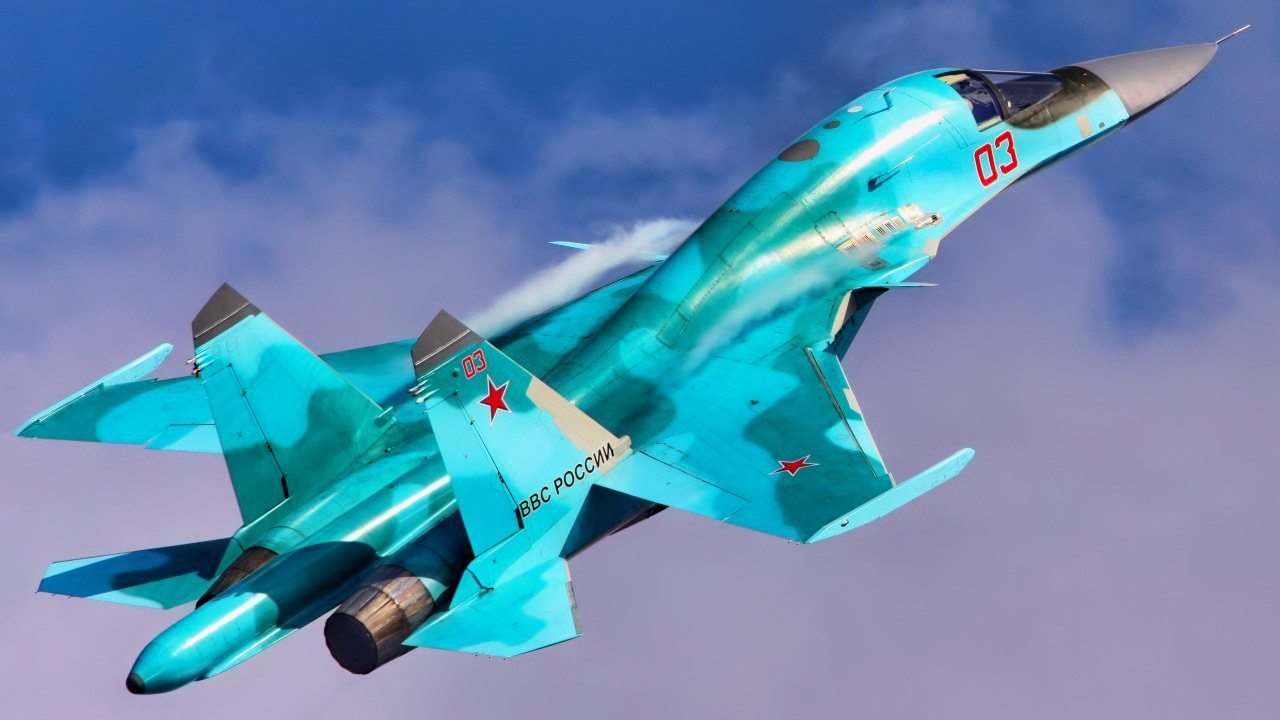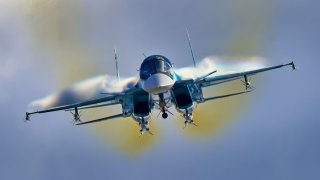Nightmare: How Many Su-34 Fullback Fighter-Bombers Will Fall from the Sky?
The Russian Su-34 fighter bomber has become a crucial asset in the Ukraine War, frequently recorded in combat over contested skies. Despite sustaining significant losses, including 26 Su-34s since the war began as of June, the aircraft remains the backbone of Russia’s Air Force.
Summary and Key Points: The Russian Su-34 fighter bomber has become a crucial asset in the Ukraine War, frequently recorded in combat over contested skies. Despite sustaining significant losses, including 26 Su-34s since the war began as of early this year, the aircraft remains the backbone of Russia’s Air Force.

-While the attritional nature of the war means that both sides are suffering heavy losses, Russia’s larger industrial and manpower resources allow it to endure longer than Ukraine. However, the loss of Su-34s, compounded by production challenges, indicates that Russia is struggling to replenish its fleet quickly.
-This ongoing attrition raises questions about the long-term sustainability of Russia's air operations in the conflict.
Russia's Air Force Struggles: The Impact of Su-34 Losses in Ukraine
The Su-34 has become what many observers describe as the “backbone” of Russia’s Air Force in the Ukraine War. Indeed, it is a warbird that is most commonly recorded in combat in the contested skies of Ukraine – and it is a plane that has sustained an astonishing number of losses.
The question is: What does that data point mean for the overall war effort?
It’s hard to tell, given the amount of lying from both sides in this interminable, bloody war.
One thing is clear, though, both sides have suffered an extraordinary amount of losses in terms of personnel and equipment. And there doesn’t appear to be any end in sight of the suffering.
At least, not anytime in the next few months.
Russia Endures, Ukraine Weakens
Many cannot help but to ponder just when these staggering losses will catch up to either side sooner. Even with the Su-34 being decimated by Ukrainian air defenses, the attritional nature of the Ukraine War means that, so long as the combatants can sustain these high losses for a protracted period of time, the losses will not be catastrophic.
Since it is the Russians sustaining these losses, and their industrial base—as well as the country’s manpower and commodities bases—is far greater than that of Ukraine, the loss of the Su-34s in combat will not lead to defeat.
Writing at Bulgarian Military, Bokyo Nikolov, assessed the delivery of four new Su-34s since January of this year. According to Nikolov, “the production of Su-34s seems to be falling short, with significant loss reports since early 2024.
Conflicting accounts suggest that on June 14, at least five Su-34 fighter bombers were lost during a Ukrainian drone attack on Morozovsk airport in Russia.” Nikolov continued in his analysis by concluding that, “it’s evident that Russia struggles to compensate for its losses. With five Su-34s lost after June 14 and only four new Su-34s delivered since January, the challenge is clear.”
Just so we’re all on the same page, I find it necessary to remind readers that the Russian Federation still holds the territories in Eastern Ukraine and Crimea – positions that have been hardened over the years – that they held before the war.
What’s more, it appears the Russian offensive is ramping up against a Ukrainian Army that is increasingly hollow and in need of constant replenishment in terms of money, equipment, and recruits . The Russians, meanwhile, continue to churn out tanks and aircraft like sausages from their factories in the Russian Far East.
It's true that the Ukrainians are crafty fighters. They have utilized NATO-provided air defense systems at the front of their war against Russia in creative and effective ways. That’s why, since February 2022, it is believed that Russia has lost twenty-six Su-34s. (These numbers were collected until February of this year).
As I have reported in these pages, though, the Russians are adapting to innovative Ukrainian tactics as well. One such adaptation is to deploy longer-range glide bombs with higher yields.
Russia is Adapting with Su-34
The piece above references the fact that Su-34s are now being loaded with FAB-500M62 homing bombs under their wings. Further, “there has been a noticeable rise in the deployment of cruise bombs” against Ukrainian targets by Russian air assets. Russia has therefore reduced the vulnerability of their warplanes to the Ukrainians.
In other words, all this fixation by Western analysts on the fact that Russia is producing one less Su-34 compared to the number of Su-34s that were lost over the last six months in Ukraine is ridiculous. At best, it shows how utterly incompetent most analyses of the war from the Western perspective have been. At worst, many Western writers are spreading outright propaganda designed to further distract easily distracted audiences from the fact that the war is going poorly.
A war of attrition is something that most Americans cannot remember. The last serious attritional war the U.S. fought was against Vietnam, and it lost. The Russians, on the other hand, traditionally fight wars of attrition. Admittedly, the Ukraine War was not intended to be a war of attrition. The Putinist regime had a wildly different idea of how the war would be fought and won. They envisaged a quick blitz into Ukraine that would last a few weeks and end with a mighty victory parade through the abandoned streets of a broken and defeated Kyiv.
The Su-34 Losses Don’t Matter
The war lasted longer and consumed more resources than Putin intended. But now that they’re in it, the Russians are not going to just quit. They will grind it out and wear their opponent down. Attrition is how the Russians liberated themselves from the Mongols. It’s how they stopped Napoleon. And how the Russians defeated Hitler.
Regardless of how many Su-34s they lose, the Russians are still winning.

America should be encouraging their Ukrainian allies to make a deal while they still can with Moscow, not fixating on any single datapoint, such as the fact that Russia has lost a large number of Su-34s.
Author Experience and Expertise: Brandon J. Weichert
Brandon J. Weichert, a National Interest national security analyst, is a former Congressional staffer and geopolitical analyst who is a contributor at The Washington Times, the Asia Times, and The-Pipeline. He is the author of Winning Space: How America Remains a Superpower, Biohacked: China’s Race to Control Life, and The Shadow War: Iran’s Quest for Supremacy. His next book, A Disaster of Our Own Making: How the West Lost Ukraine, is due October 22 from Encounter Books. Weichert can be followed via Twitter @WeTheBrandon.
All images are Creative Commons or Shutterstock.
From the Vault
Russia Freaked Out: Why the U.S. Navy 'Unretired' the Iowa-Class Battleships
Battleship vs. Battlecruiser: Iowa-Class vs. Russia's Kirov-Class (Who Wins?)


